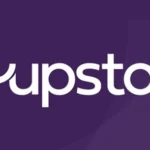Zerodha Advantages and Disadvantages
When it comes to discount brokers in India, one name dominates the market – Zerodha. Founded in 2010 by Nithin and Nikhil Kamath, Zerodha revolutionized Indian stock trading with its discount brokerage model. As of 2025, it is still the largest stockbroker in India, trusted by over 1.5 crore customers.
But is Zerodha truly the best broker for every investor and trader? Like every financial platform, it has its strengths and weaknesses. This article will break down the advantages and disadvantages of Zerodha, so you can decide whether it’s the right platform for your investment journey.

What is Zerodha?
Zerodha is India’s first successful discount brokerage firm, offering trading in:
- Equity (delivery and intraday)
- Futures & Options (F&O)
- Commodities
- Currency Derivatives
- Mutual Funds (through Coin app)
- Bonds & Government Securities
It disrupted the traditional brokerage industry by introducing flat fees instead of percentage-based charges, making investing affordable for millions. Zerodha also became popular for its technology-driven approach with tools like Kite (trading platform), Coin (mutual fund investments), and Varsity (educational portal).
Advantages of Zerodha
Here are the biggest benefits that make Zerodha India’s most popular broker.
1. Low Brokerage Charges
Zerodha follows a flat-fee discount brokerage model:
- Equity Delivery: Free (no brokerage)
- Intraday, F&O, Commodities, Currency: ₹20 or 0.03% per executed order (whichever is lower)
- Mutual Funds (Direct via Coin): Free
This pricing makes it very attractive for both beginners and active traders.
2. Free Equity Delivery
One of Zerodha’s biggest USPs is that long-term investors pay zero brokerage on equity delivery. This encourages wealth creation without worrying about recurring fees.
3. World-Class Trading Platforms
Zerodha is widely respected for its robust and user-friendly platforms:
- Kite – A powerful trading platform with advanced charting, 100+ indicators, and real-time data.
- Coin – For direct mutual fund investments with zero commission.
- Console – Central dashboard for portfolio tracking, P&L statements, tax reports.
- Varsity – A free educational portal covering everything from basics to advanced trading strategies.
The Kite app, in particular, is one of the most stable and widely used trading apps in India.
4. Advanced Charting and Analysis Tools
For traders, Zerodha offers advanced charting features with integration of tools like TradingView and ChartIQ. Features include:
- Multiple chart types
- Technical indicators
- Market depth (Level 3 data)
- GTT (Good Till Triggered) orders for conditional trading
This makes it suitable for serious intraday traders as well as swing traders.
5. Huge Customer Base and Trust Factor
Zerodha is India’s largest broker, handling millions of daily trades. Its SEBI registration, CDSL membership, and regulatory compliance make it one of the most trusted platforms in India.
6. Educational Support for Investors
The Zerodha Varsity initiative is one of the best free resources for learning about the stock market in India. It provides:
- Basics of investing
- Technical and fundamental analysis
- Options strategies
- Risk management
This makes Zerodha beginner-friendly while still serving advanced traders.
7. Transparency and No Hidden Charges
Unlike some brokers, Zerodha is transparent with its fee structure. Brokerage, taxes, and other charges are clearly displayed before order execution.
8. Innovations and Partner Apps
Zerodha continues to innovate with in-house tools and third-party integrations, such as:
- Streak – Algorithmic trading without coding.
- Sensibull – Options trading strategies platform.
- Smallcase – Thematic investing in stock baskets.
This ecosystem gives investors and traders multiple ways to grow wealth.
Disadvantages of Zerodha
Despite its many strengths, Zerodha does have certain limitations. Let’s examine the drawbacks.
1. No Free Account Opening
Unlike some brokers offering free accounts, Zerodha charges:
- ₹200 for online account opening (₹300 if including commodity trading).
- Annual Maintenance Charge (AMC) for Demat: ₹300/year.
Though not very high, these costs may discourage beginners looking for a zero-cost entry.
2. No Relationship Managers or Advisory Services
Zerodha is a do-it-yourself (DIY) broker. Unlike full-service brokers like ICICI Direct or HDFC Securities, it does not provide:
- Personalized investment advice
- Dedicated relationship managers
- Stock recommendations
This may be a limitation for beginners who want guided investing.
3. Customer Support Challenges
Many users report delays in customer support responses, especially during market rush hours. While support is available via phone, email, and tickets, it is not as fast as traditional brokers.
4. No 3-in-1 Account
Unlike ICICI Direct or Kotak Securities, Zerodha does not provide a 3-in-1 account (Bank + Demat + Trading). You need to link your Zerodha trading account with an existing bank account.
5. No Stock Tips or Research Reports
Zerodha does not provide research reports, buy/sell recommendations, or analyst calls. Traders must rely on their own analysis or external tools.
6. Technical Issues During High Volume
During major IPOs, budget days, or market crashes, Zerodha’s platform occasionally faces downtime or order delays. While this has improved in recent years, it remains a concern for active traders.
7. Not Ideal for Commodity Traders
Though Zerodha offers commodity trading, its focus remains largely on equity and F&O. Professional commodity traders might find platforms like Angel One or Upstox better suited.
Zerodha App Quick Advantages and Disadvantages
| Aspect | Advantages | Disadvantages |
| Brokerage | Free equity delivery, ₹20/order flat fee | Account opening & AMC charges |
| Platforms | Kite, Coin, Console, Varsity – modern & powerful | Occasional downtime in high volume |
| Trading Tools | Advanced charting, TradingView integration | No advisory or stock tips |
| Education | Free Varsity modules, beginner to advanced | Self-learning required |
| Support | Online helpdesk, large community | Slower response, no physical branches |
| Products | Equities, F&O, Commodities, Mutual Funds, Bonds | No 3-in-1 account, limited in commodities |
Should You Use Zerodha in 2025?
Best For:
- Retail investors who want low-cost, transparent investing.
- Long-term investors (since equity delivery is free).
- Active traders needing powerful charting and tools.
- Investors who prefer a DIY approach with learning resources.
Not Ideal For:
- Beginners who need advisory or hand-holding.
- Investors wanting relationship managers or stock tips.
- Traders who require 100% uptime during high volatility.
Final Verdict
In 2025, Zerodha remains India’s #1 broker for a reason: it combines low-cost trading, powerful platforms, and transparency. For self-driven investors and traders, it is one of the best choices.
However, if you are a beginner needing guided investment advice or someone looking for bank-linked 3-in-1 accounts, you may want to complement Zerodha with a full-service broker.
👉 Verdict:
- ✅ Great for cost-conscious investors and active traders.
- ❌ Not suitable for those needing personalized advice or research reports.


